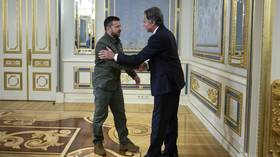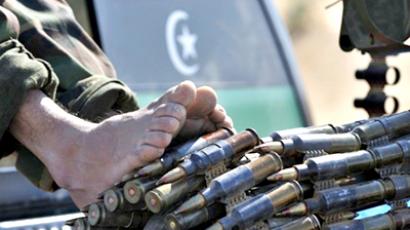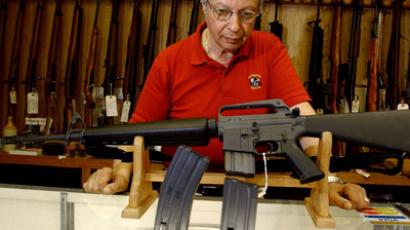Britain suspends 49 military export licenses to Egypt
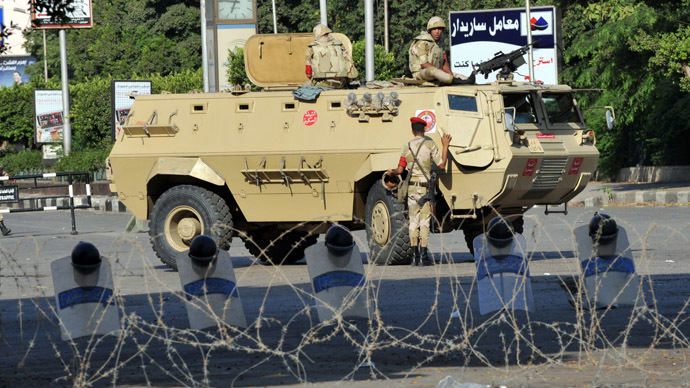
The UK government has axed 49 arms export licenses to Egypt to prevent UK weapons and military equipment being used in the deadly unrest in the Middle Eastern country.
One of Britain’s biggest military export destinations is now
limited to electronics, helicopters and spares.
“This suspension will apply to licenses for the Egyptian army, air force and internal security forces or ministry of the interior,” UK’s Department for Business, Innovation and Skills said in a statement.
After London suspended five military export licenses to Egypt in July, notably for tank communication equipment, machine gun parts and components for armored fighting infantry vehicles, 129 other licenses remained. Those included deals to supply body armor and military helmets, assault and sniper rifles, combat shotguns, pistols, weapon sights and acoustic riot control devices.

Now 49 of these licenses have been suspended, including for the export of military items such as aerial target and radar, cryptographic, communications and software equipment, components for military helicopters and vehicles, and small arms firing training ammunition.
A military helicopter order for Egypt worth £43 million has not
been suspended, however.
“As a result of the developing situation in Egypt, we have agreed with EU partners in this instance to go further and suspend all export licenses for goods which might be used for internal repression,” Business Secretary Vince Cable said in a statement, stressing that “by acting together, we want to send a clear signal that we condemn all violence in Egypt.”
The suspension will remain in place until “conditions in Egypt indicate that it is appropriate to lift these restrictions," Cable said in his statement.
On August 21 EU foreign ministers agreed to suspend arms sales to Egypt.
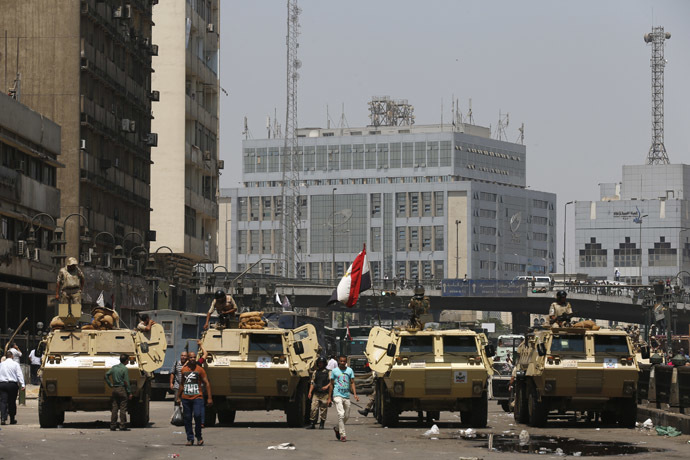
EU governments “feel very strongly that they want to continue to support vulnerable people in Egypt,” EU foreign policy chief Baroness Ashton said after emergency talks in Brussels.
“We mustn't do anything that hurts [Egyptians] or that cuts off support to them,” UK Foreign Secretary William Hague said at the time.
In July, US President Barack Obama gave an executive order to suspend the delivery of F-16 fighter jets to Egypt, saying it was no longer “appropriate” following the toppling Mohamed Morsi’s government.
Ahead of an arms exhibition in London's Docklands next month, activists from the Campaign Against Arms Trade have urged a halt to all UK arms exports to Egypt in an effort to put an end to the international arms trade to the regime. The UK government said in response it had no knowledge of any Egyptian officials being invited to the exhibition.
On July 3, the Egyptian army deposed Islamist President Mohamed
Morsi, triggering the worst public unrest and violent clashes
between law enforcement and protesters in Egypt’s modern history.
Since then over 1,000 people, among them nearly 100 law
enforcement and military servicemen, have died in the clashes.
Most of the deaths occurred on August 14, when security forces
violently broke up two pro-Morsi protest camps.


